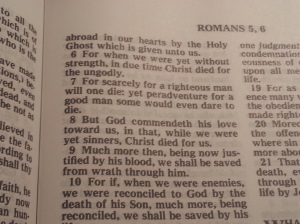
I confess I lost my way.
When I started this endeavor, it was with specific intent. It was to bring encouragement to fellow believers and show the path to a true relationship with God to those who didn’t know it.
It was to represent grace in today’s world and in today’s church, where it’s often lacking. Lacking not because people are cruel, but because they don’t always understand how to display grace in the tough situations. Or sometimes because we’ve been conditioned to react in ways that – while commonly accepted as Christian – are far from what Christ taught or modeled.
It was to speak freedom to people who were caught in a cycle of hiding and dragging their chains with them because they felt too ashamed or hopeless to stand up to their jailer – a jailer that takes various forms:
- Our past – shame over the things we have done or people we’ve hurt.
- Current struggles – things like addiction, unwanted but seemingly inescapable habits or desires, negative mindsets, poor self-image.
- Our spiritual Enemy – Satan, Lucifer, the Devil, whatever you want to call him.
(I personally believe that ultimately the jailer that holds the keys to every chain that binds us is this Enemy. Yes, I believe he exists. And I believe he is active. He doesn’t want us to live free, because it scares him! A world full of free-living people could bring the roof down on all his hopes and plans, and he knows it!)
Whatever or whoever the jailer is, the truth is that we have a Savior who brings freedom which transcends all the brokenness. A God who represents everything the Enemy doesn’t want us to realize.
That message was my motivation. But I lost that. I got caught up in lies, and allowed the lies to derail me from these truths. As a result, I lost my focus, and then the path. Until the next thing I knew, I was in the thickets not even sure where the path was or when I had left it.
I had allowed exactly what Paul warned the Galatians not to allow – “do not be subject again to a yoke of slavery” (Galatians 5:1).
The result – a year of almost total silence.
But praise God for the freedom to resume. The freedom to get back to the work when we realize we need to re-center. The freedom to shake off the chains, and engage afresh.
Let me encourage the reader: if you’ve lost the path – if there is something that God laid on you and you got caught up in distractions or discouragement or apathy – God is still calling you to serve Him. Pick it up, whatever it is, and serve Him. You will not be happy until you are serving where God has called you to serve.
Eternity starts today, and in God’s economy the game never times out. No matter how long it’s been paused, we have the freedom to resume.









